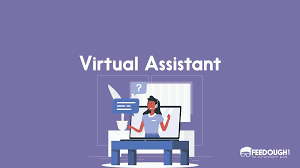A Virtual Assistant (VA) is a professional who provides administrative, technical, or creative assistance to clients remotely. The role of a...
1. Administrative Tasks
A. Email Management: Organizing inboxes, responding to routine emails, and managing email lists.
B. Calendar Management: Scheduling appointments, meetings, and managing client calendars.
C. Data Entry: Inputting data into spreadsheets, databases, or CRMs.
D. File Management: Organizing and maintaining digital files.
E. Customer Service: Responding to customer inquiries via email, chat, or phone.
F. Booking Travel: Arranging travel itineraries, accommodations, and transportation.
2. Technical Tasks
- Website Maintenance: Updating content, managing plugins, and basic troubleshooting for websites.
- Social Media Management: Posting content, managing profiles, and engaging with followers on various social media platforms.
- SEO Optimization: Assisting in optimizing content for search engines.
- Email Marketing: Creating and managing email campaigns, newsletters, and subscriber lists.
- Technical Support: Assisting with minor IT issues or coordinating with technical support teams.
3. Creative Tasks
i. Content Creation: Writing blog posts, creating social media content, and developing marketing materials.
ii. Graphic Design: Designing visuals for social media, websites, or marketing materials.
iii. Video Editing: Editing video content for platforms like YouTube, social media, or training materials.
iv. Presentation Design: Creating visually appealing presentations in tools like PowerPoint or Canva.
4. Communication and Collaboration
- Client Interaction: Regular communication with clients to understand their needs and update them on progress.
- Project Management: Using tools like Trello, Asana, or Slack to manage projects and collaborate with teams.
- Research: Conducting online research on various topics as required by the client.
5. Business Development
- Lead Generation: Identifying potential clients or customers through various online channels.
- Market Research: Analyzing market trends and competition to assist in strategic decision-making.
- Proposal Writing: Creating proposals or presentations to pitch services to potential clients.
6. Financial Management
- Invoicing: Preparing and sending invoices to clients.
- Expense Tracking: Managing and tracking expenses, often using tools like QuickBooks or Excel.
- Budgeting: Assisting clients with budget planning and financial forecasting.
7. Personal Assistance
- Errand Management: Assisting with personal tasks such as online shopping, booking appointments, or making reservations.
- Event Planning: Organizing events, from small meetings to large corporate events.
Skills Required
- Time Management: Ability to prioritize tasks and manage time efficiently.
- Communication Skills: Strong verbal and written communication skills.
- Technical Proficiency: Familiarity with office software (e.g., MS Office, Google Workspace), project management tools, and relevant technical platforms.
- Problem-Solving: Ability to anticipate client needs and solve problems proactively.
- Attention to Detail: Ensuring accuracy in tasks like data entry, scheduling, and content creation.
- Self-Motivation: Ability to work independently with little supervision.
Work Environment
- Remote Work: Virtual Assistants work from home or any location with a stable internet connection.
- Flexible Hours: Depending on the client's needs, VAs may work part-time, full-time, or on a freelance basis.
- Client-Based: VAs often work for multiple clients simultaneously, balancing their time and tasks across different projects.
Tools Commonly Used
- Communication: Slack, Zoom, Skype
- Project Management: Asana, Trello, Monday.com
- File Sharing: Google Drive, Dropbox, OneDrive
- Social Media: Hootsuite, Buffer, Later
- Email Marketing: Mailchimp, Constant Contact, Sendinblue
- Accounting: QuickBooks, FreshBooks, Xero
Career Path and Opportunities
- Specialization: Virtual Assistants can specialize in areas such as digital marketing, e-commerce, or executive assistance.
- Business Growth: Experienced VAs can start their own VA business, offering specialized services or managing a team of VAs.
- Continuous Learning: Keeping up with new tools and technologies is crucial for career advancement.
Conclusion
Being a Virtual Assistant offers the flexibility to work from anywhere, catering to clients across various industries, and providing a wide range of services based on one’s skills and interests.





















COMMENTS